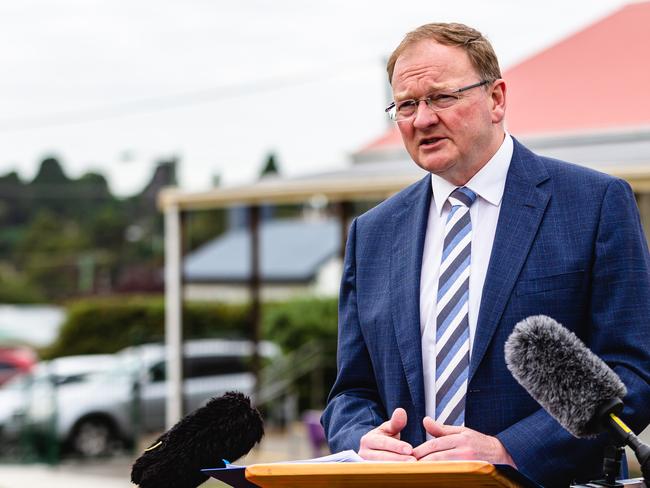Tasmania urged to follow Victoria in announcing forced adoption redress scheme
Tasmania has been urged to follow Victoria’s lead in announcing a redress scheme for mothers traumatised by historical forced adoptions.
Police & Courts
Don't miss out on the headlines from Police & Courts. Followed categories will be added to My News.
TASMANIA must follow Victoria’s lead in announcing a redress scheme for women whose babies were taken away from them in forced adoptions, key lawyers say.
Rowena Macdonald, who is acting for 12 Tasmanian mothers planning to sue the state government, the Salvation Army and other agencies associated with the historical practice, said they needed to be compensated for their “lifelong pain and suffering”.
On Thursday, the Victorian state government announced a $4 million redress scheme for mothers whose babies were forcibly taken from them between 1958 to 1984.
Ms Macdonald said a similar scheme needed to be enacted in Tasmania immediately.

“Many of these women are now in their 60s and 70s and time is running o
ut for them to have their lifelong pain and suffering finally acknowledged,” she said.
“They have been permanently scarred by what they endured at the hands of hospitals and institutions run by the state, charitable organisations and churches. It has scarred their children.
“They grieve every day.”
An apology to the victims of forced adoptions was made in parliament during 2012 by then-premier Lara Giddings, but Ms Macdonald said this was not enough.
“An apology without compensation to truly acknowledge the devastating effect of forcibly taking these women’s children away from them is meaningless,” she said.
Greg Barns SC, who has been acting for mothers in Victoria seeking compensation, said a redress scheme should be nationwide.
Mr Barns, the Australian Lawyers Alliance criminal justice spokesperson, said the women had already waited too long for their suffering to be fully acknowledged.
“The sorts of practices that occurred were horrific and, even by the standards of the times,
amounted to assaults, duress and other breaches of the law,” he said.
“A redress scheme allows victims who don’t wish to pursue a lawsuit to receive
compensation without having to prove negligence or participate in potentially extended
legal action.
“Other states and territories must follow Victoria’s lead and develop redress schemes to
financially acknowledge the serious harm caused by forced adoption.”
The Tasmanian government didn’t provide an answer as to whether it would introduce a redress scheme.
Roger Jaensch, Minister for Education, Children and Youth, said the government was “committed to ensuring that any unethical, immoral or illegal practices” from the past were never repeated.

He said since 2012, Tasmania had implemented several “practical” initiatives, including free access to adoption records and family tracing services, free specialised counselling services, a formal apology and a “Tree of Hope” memorial at the Botanical Gardens.





